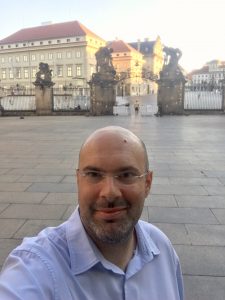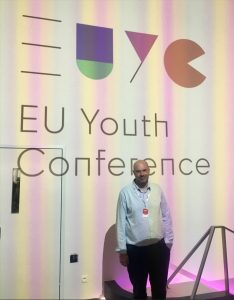Nektarios Kalantzis, the President of the European Local Leaders -ELL Group visited Brusssels, 13-14 March, 2023 and he met the General Secretary of EPP- European People’s Party Thanasis Bakolas.
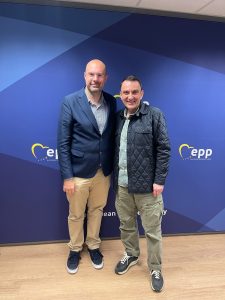
Nektarios Kalantzis, the President of the European Local Leaders -ELL Group visited Brusssels, 13-14 March, 2023 and he met the General Secretary of EPP- European People’s Party Thanasis Bakolas.

More women in politics and women leaders in Europe tomorrow Laura Danilas, Municipal Councillor of Tartu Municipality, Estonia Vice President of ELL Group This Sunday Estonia made history with an e-voting majority and a record female presence in the new parliament. Since then a record-high number of female representatives, a total of 30 women out of 101 were elected to Riigikogu, two more compared to in the previous elections. Kaja Kallas, the Prime Minister of Estonia secured 31816 votes which is a new record for a single candidate. Women’s participation in policy-making is fundamental to democratic governance. It helps to promote gender equality and influences both the types of policy issues that are considered and the types of solutions that are offered. It is also important to keep in mind that women prioritize more education, health and social welfare than masculine issues. Despite the fact that we have very strong female leaders in defense and economy women are more likely to be engaged in less attractive fields. Also, according to various surveys, increased representation of women helps also to counteract corruption in politics. The participation of women at the national, local and community level has become an important focus of global development. In order to make sustainable decisions we need more women in politics. It is crucial not to have a homogeneous group of policy makers, but men and women from different age groups and walks of life. To make the change we need girls in school to become women in politics – everything starts from the education system. It is clearly seen that political parties and their voters should support more women. In particular, men are more likely to vote for attractive male candidates, and women are more likely to vote for approachable male candidates. Thus, who supports women then? Greater inclusion of women in politics starts with supporting each other As Former British Prime Minister Mrgaret Thatcher said “If you want something said, ask a man, if you want something done, ask a woman.“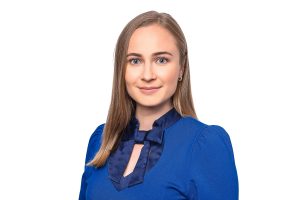
International Women’s Day By Julia Heinrich Local councillor in the 19th district of Vienna (Döbling), Austria General Secretary of ELL Group Women and female leaders in politics Every year, on the 8th of March, we speak about more female participation in various sectors of our society and equal chances between men and women. Despite many efforts and political reforms in the past decades, the results are still not fully satisfying until today. If we take a specific look into the political sector, we can notice that many youth organisations of political parties do have a good gender balance. This shows that many women are interested in politics and want to participate in the democratic processes that shape our societies and countries. Over the years, we can observe that many women leave the political sector after a certain time and therefore drop out, before they can reach higher leadership positions on the regional and national level. There are several reasons, but two main issues, which are well known but unfortunately not solved yet, are the lack of full time childcare facilities and the double standard, which is applied upon women in politics. Even though many cities and communities offer all day childcare nowadays, many of them do not provide care during school vacations. Summer vacations in Austria last for two months, but a regular employee has only five weeks of holidays each year – politicians mostly have even less than five weeks. Additionally we have semester, Easter, Christmas and numerous smaller holidays all year round. Women in the political sector often have to be flexible and work in the evenings or on the weekends. Without a universal childcare solution many women with the wish to have children are forced out of the political field at a certain age – many of them never come back. Another big issue is the different way we judge women and men in public and in the media. Women in politics are often criticised for the way they look or the way they dress. Especially young women have to work way harder than men to be taken seriously. This discourages many women from running for higher public offices. This problem can only be solved in cooperation with the media and by all of us, by paying attention to how we use our language when we judge women in the public sector. In conclusion, it is important to point out, that we have achieved a lot when it comes to gender equality, but there is still a lot of work ahead of us in order to fulfil the purpose of the International Women’s Day.
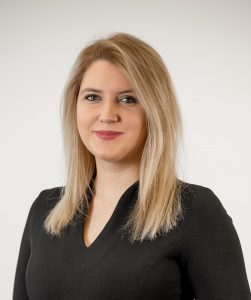
Nektarios Kalantzis, the President of the European Local Leaders -ELL Group visited Stockholm, 5-7 February, 2023 and he met the Member of the Swedish Parliament Anna Lasses at Swedish Parliament (Riksdag) and the Vice Mayor of Solna Municipality Martin Karlsson at the Solna City Hall.
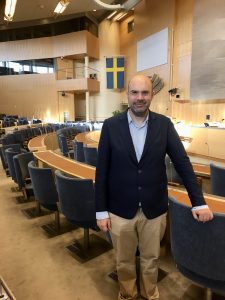
Nektarios Kalantzis, the President of the European Local Leaders -ELL Group visited Hamburg and Berlin, 18-21 January, 2023 and he met the Vice President of the Hamburg City Parliament Mareike Engels at Hamburg City Hall.
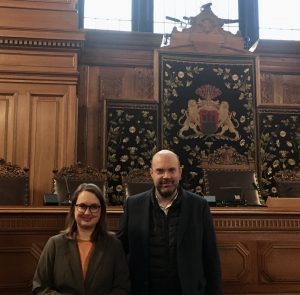
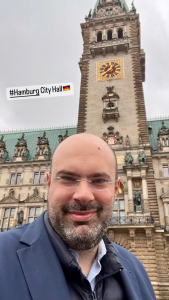
Nektarios Kalantzis, the President of the European Local Leaders -ELL Group visited Brusssels, 01-02 December, 2022 and he met the Mayor of Ixelles Municipality Christos Doulkeridis at Ixelles City Hall.
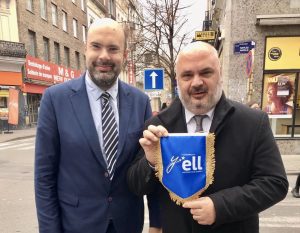
Nektarios Kalantzis, the President of the European Local Leaders -ELL Group visited Brussels, 10-12 October, 2022, the 20th European Week of Regions and Cities.
As a member of CoR Young Elected Politicians Programme (YEPs) 2022, he met the President of the European Parliament, Roberta Metsola at the European Parliament in Brussels.
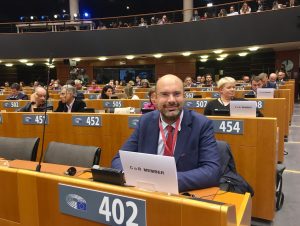
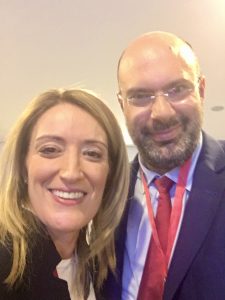
Nektarios Kalantzis, the President of the European Local Leaders -ELL Group visited Copenhagen, 01-03 October, 2022 and he met the Lord Mayor of Copenhagen Municipality Sophie Hæstorp Andersen at Copenhagen City Hall.
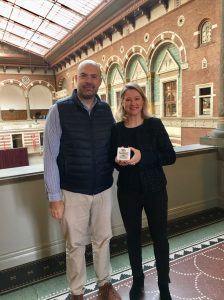
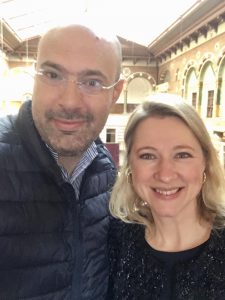
Nektarios Kalantzis, the President of the European Local Leaders -ELL Group visited Lisbon, 8-10 September, 2022.
As a member of European Young Leaders (EYL40) 2022, he met the Mayor of Lisbon, Carlos Moedas.
Climate change is the defining crisis of our generation, and no corner of our planet is protected or immune.
It’s Time to Act!
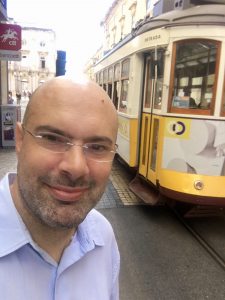
Nektarios Kalantzis, President of the European Local Leaders Group was selected to represent Greece at the EU Youth Conference in Prague(11th-13th of July, 2022). ‘Young Voices’ in Greece, is part European wide process called ‘EU Youth Dialogue’ which gives young people all over Europe a chance to ‘have your say’ about decisions affecting your life. Young Voices aims to give young people an opportunity to influence decision makers and policy makers on the themes selected for the EU Youth Dialogue cycle. The focus of this EU Youth Dialogue Cycle is ‘A Greener more Inclusive Europe’.
